LUSAIL, Qatar — Lionel Messi had to wait and wait and wait.
He had to wait until he was reaching the sunset of his glittering, glorious
career. He had to wait until he had already tasted the sting of defeat in a
World Cup final. He had to wait even after he seemed to have inspired
Argentina’s soccer team to beat France in this year’s final Sunday, first in
regulation time, then again in extra time.
He had to wait until after he scored two goals — but Kylian
Mbappé of France, his heir apparent on the world stage, had gotten three,
becoming the first man to score a hat trick in a World Cup final in more than
half a century. Regulation time ended 2-2; extra time ended, 3-3; and then
there were penalties, which Argentina won, 4-2, the last twist in the most
extraordinary final in this tournament’s long history.
Only then did Messi’s wait, his agony, come to an end. Only
then could he finally claim the one prize that had eluded him, the one honor he
craved above all others, the one achievement that could further cement his
status as the greatest player to have played the game: delivering a World Cup
championship to Argentina, its third overall but first since 1986.
اضافة اعلان
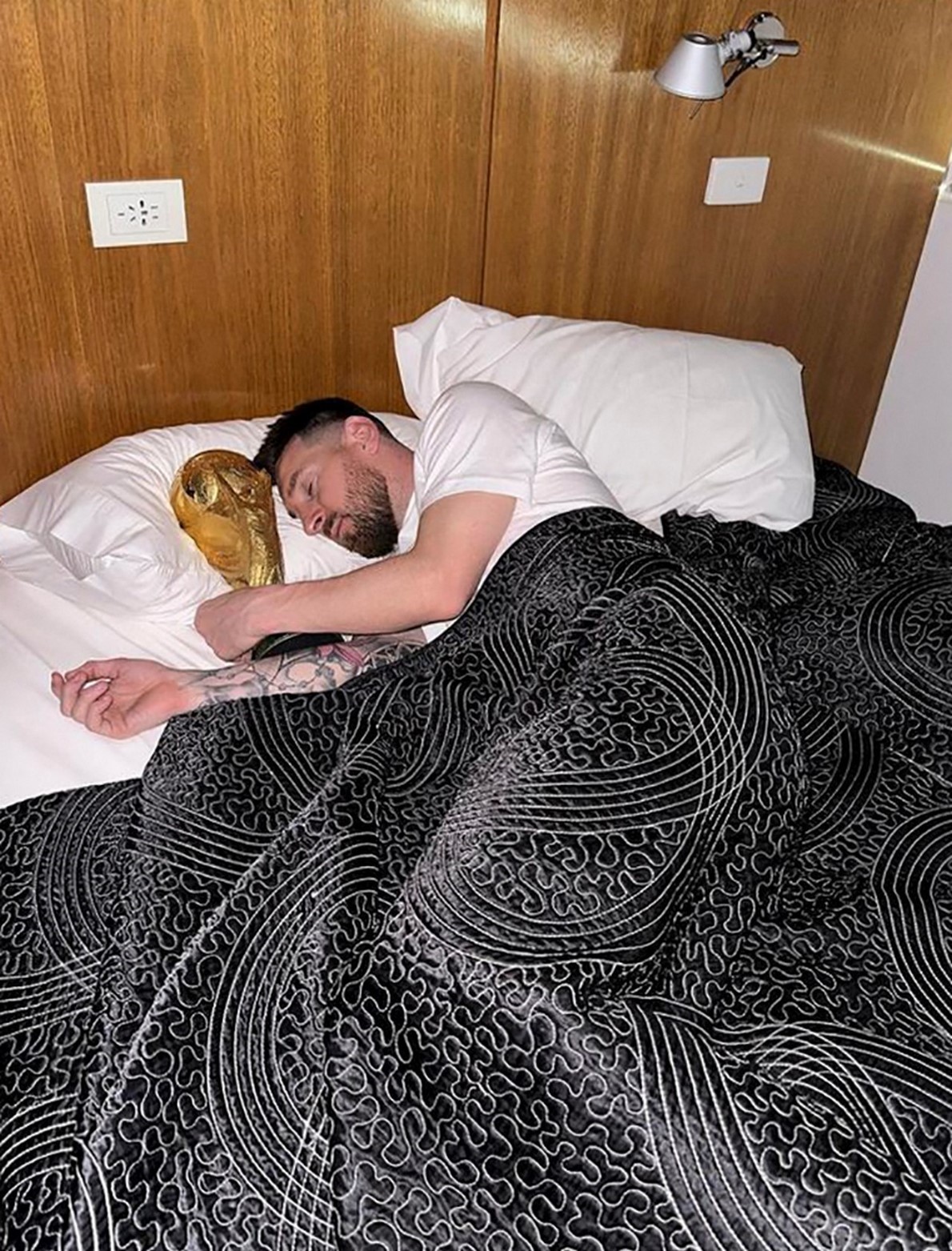
Argentina's captain and forward Lionel Messi sleeps
with the FIFA World Cup Trophy at the Argentine Football Association training
center in Ezeiza, Buenos Aires province, Argentina, on December 20, 2022.
A wild, raw energy had swirled around Argentina throughout
this tournament. It coursed through the streets of Doha, Qatar, packed with
tens of thousands of Argentine fans for the last month. It washed down from the
stands during each of the country’s seven games here, a pulsating, urgent
electricity.
The players detected it, too, their euphoria after every
victory just a little more intense, just a little more desperate, the pressure
of not only ending Argentina’s 36-year wait for a third World Cup but also
ensuring Messi’s career apotheosis driving them on and perhaps weighing them
down in equal measure. The 35-year-old Messi had said this would be his last
World Cup, his last chance to experience a joy that he and many of the fans had
not felt in their lifetime.
Everything Argentina did in Qatar was to an extreme. Its
loss to Saudi Arabia plunged the team into despair. Each of its subsequent
victories unleashed a fervent, unrestrained euphoria.
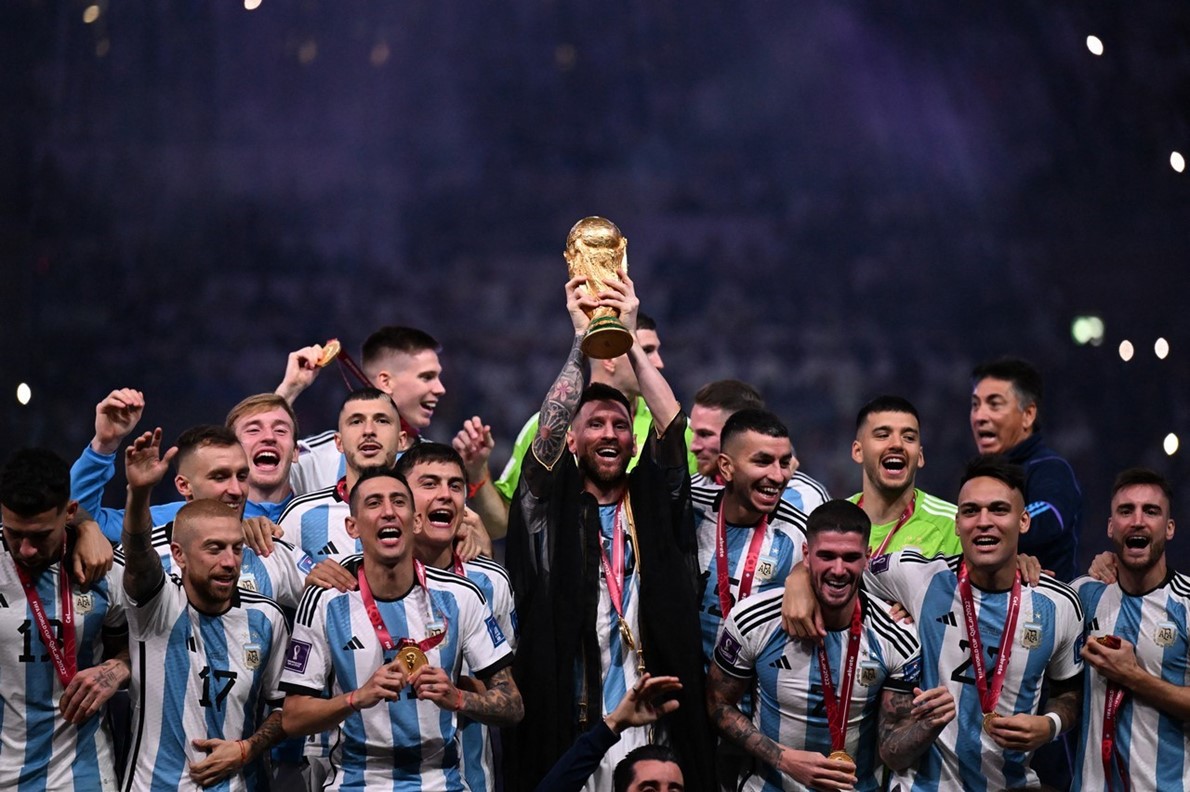
Argentina's captain and forward #10 Lionel Messi, his
wife Antonela Roccuzzo and sons Thiago (C) and Ciro pose with the FIFA World
Cup Trophy after Argentina won the Qatar 2022 World Cup final football match
between Argentina and France at Lusail Stadium in Lusail, north of Doha on
December 18, 2022.
Sunday night had teased deliverance. With only a little more
than 10 minutes to play, Argentina stood on the cusp. Coach Lionel Scaloni’s
team had shouldered the weight of history, the weight of expectation, admirably
lightly.
Argentina had not so much as quieted Mbappé as silenced him.
It had gone ahead, 1-0, in the 23rd minute, when Ángel Di María was fouled and
Messi put in the penalty kick. Argentina flexed its muscle in the 36th minute
with one of the most sumptuous goals the World Cup final has seen, a flowing
move orchestrated by Alexis Mac Allister and finished by Di María but hinging
on a pass that was a moment of characteristic Messi alchemy, a silken touch
that turned the basest material into something golden.
For all that time, the 2-0 lead looked like smooth sailing;
Argentina should have known it would not work like that. In the space of two
minutes late in the second half, France wiped out Argentina’s advantage, all of
its painstaking work crumbling in the blink of an eye: another penalty, this
one converted by Mbappé in the 80th minute, followed almost immediately by a
fierce volley, again by Mbappé.
Argentina’s players slumped, the breath drawn out of their
lungs. They had been so close. In an instant it was 2-2; they were as far as
ever.
France smelled blood; Argentina could do nothing but hang on
for extra time. Messi roused himself again, driving the ball home in the 108th
minute after goalkeeper Hugo Lloris made a save on Lautaro Martínez.
Once more, Messi was swamped by delirious teammates. Once
more, he stood in front of Argentina’s fans, pumping his arms, an idol and his
worshippers. And once more, Mbappé would not be denied, would not accept a
cameo role in someone else’s story. His shot struck the outstretched arm of
Argentina’s Gonzalo Montiel. Mbappé drilled home the penalty. The game would go
the distance, to the sweet cruelty of penalties.
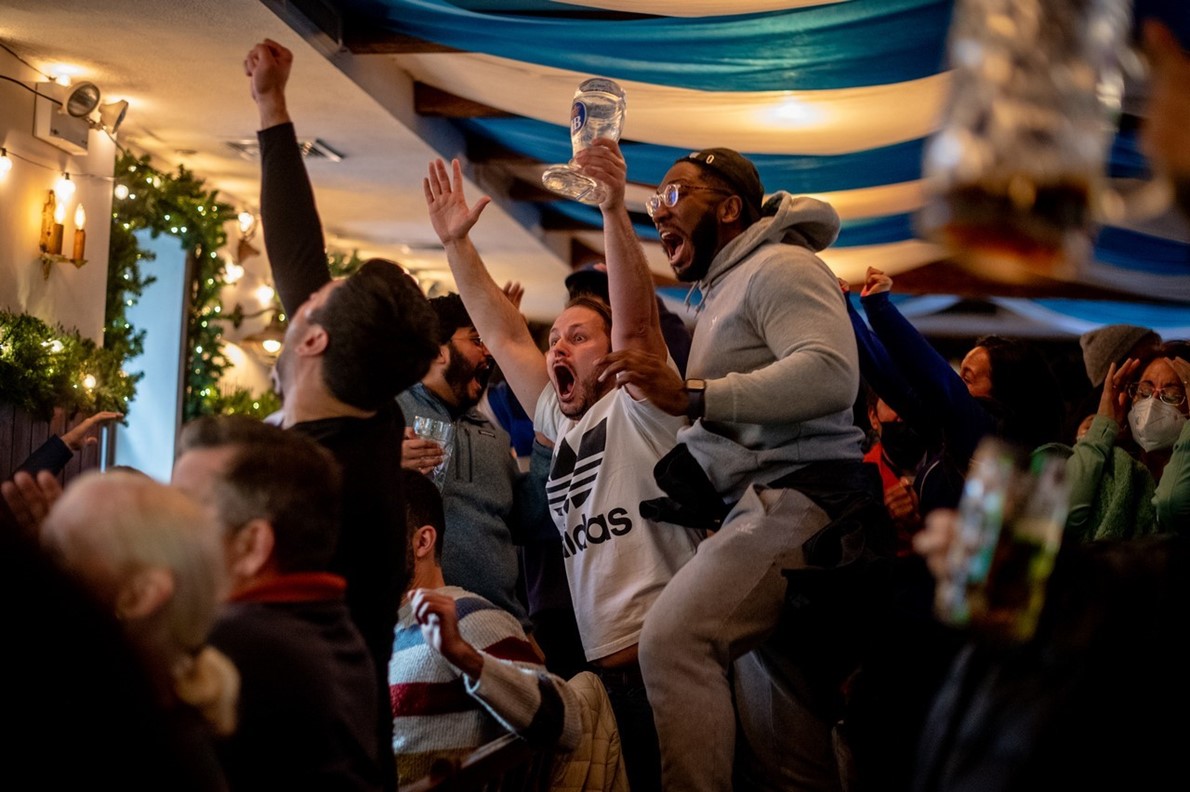
Argentinian fans gather after Argentina wins the final
match of the 2022 World Cup against France, in Buenos Aires, Argentina.
There, for once, it would not be Messi — or Mbappé — who
delivered the decisive blow. They both scored. But no matter how teams try to
manipulate the order, to direct destiny, penalty shootouts are, invariably, a
place for unlikely heroes and unfortunate villains. Kingsley Coman and Aurélien
Tchouaméni missed for France, leaving Montiel, an unheralded right back,
standing with his country, and Messi’s legacy, on his shoulders.
The noise that Argentina’s fans emitted when the ball struck
the net seemed to pierce the sky. Messi’s wait, at last, was over.
In the moments after he had arrived at what he has always
seen as both his destiny and his duty, though, Messi seemed improbably,
blissfully calm. As his teammates ran to one another, to the massed bank of
Argentina’s fans behind the goal in which the final, crucial blow had been
delivered, most of them could bear it no longer.
For most, all of that hope, all of that belief, all of that
fear broke at once. Di María’s face was stained with tears, his chest heaving
as he tried to catch his breath. Messi, on the other hand, simply smiled, a
brow briefly furrowing in a manner familiar to any harried parent as he tried
to work out how his wife, Antonela Roccuzzo, might bring their three children
onto the field.
It was only when he embraced his mother a few minutes later
that he could maintain his composure no longer, when he finally allowed his
joy, his relief, to sweep him away. Messi might have learned long ago that it
would not be easy to emulate Diego Maradona, to turn Argentina into a world
champion; he could not, surely, have imagined it would be quite this hard.
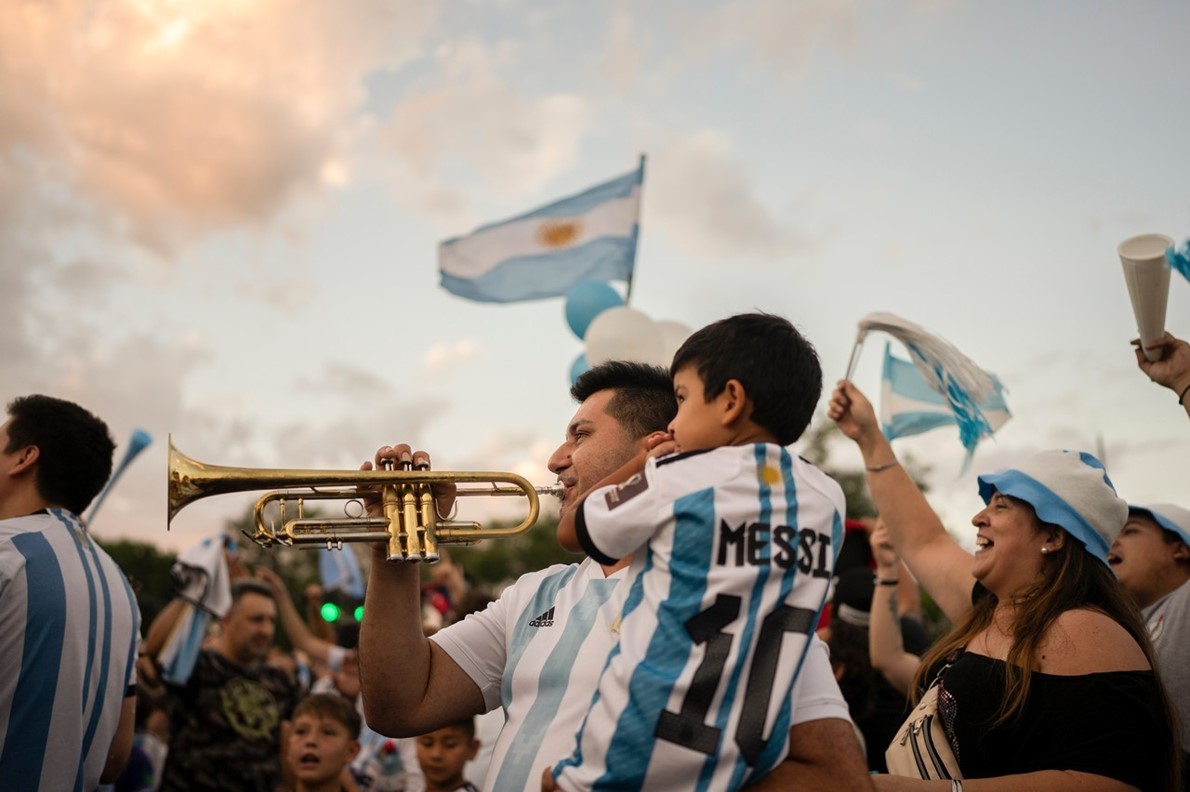
Fans react while watching the final match of the 2022
World Cup between Argentina and France, at Bierhaus NYC in New York.
Now it was done. He congratulated his teammates. He joined
them, arms slung over their shoulders, as they danced and bounced with their
fans. He found his family, clasped them tight.
And then he was summoned to the stage that had been erected
in the middle of the field. FIFA likes to draw these things out; before the
World Cup trophy is presented, it must run through the young player of the
tournament, the top goalkeeper, the leading scorer, the best player. That final
prize went, of course, to Messi. This World Cup was about him. It has always
been about him.
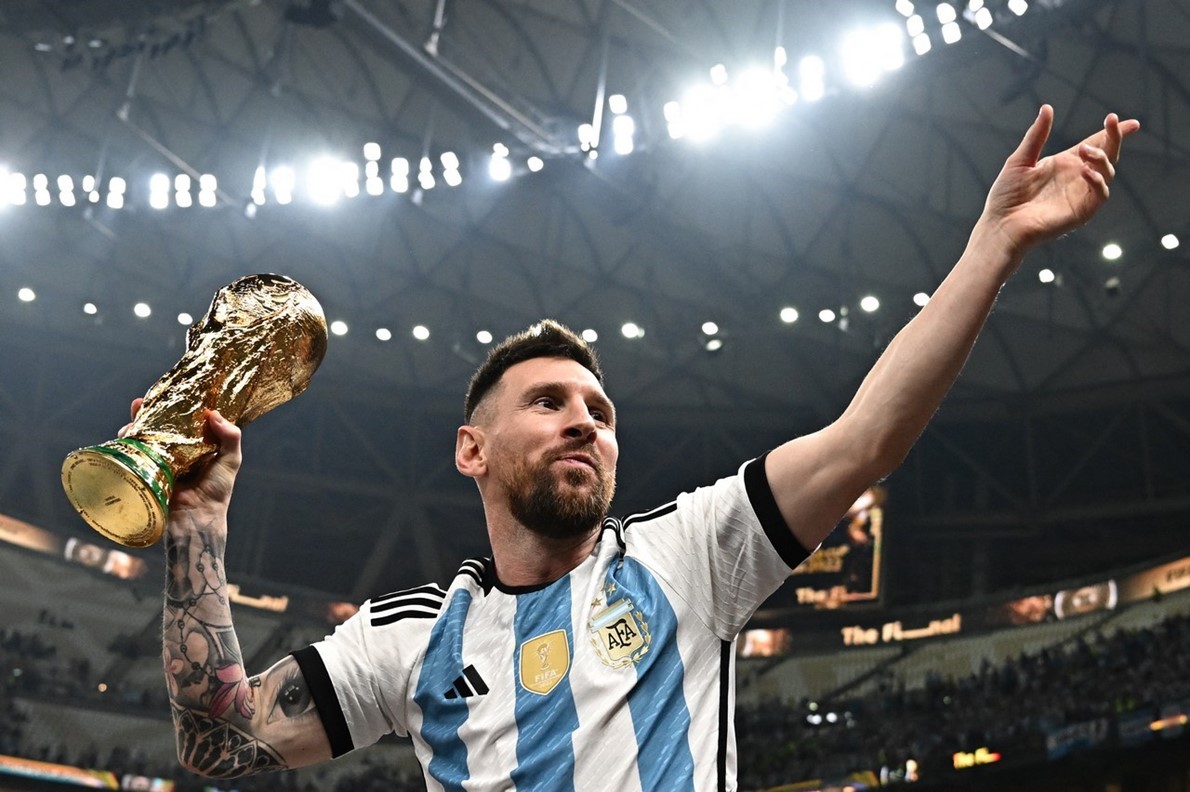
Argentina's captain and forward #10 Lionel Messi (center)
lifts the FIFA World Cup Trophy on stage as he celebrates with teammates
winning the Qatar 2022 World Cup final football match between Argentina and
France at Lusail Stadium in Lusail, north of Doha on December 18, 2022.
He collected his best-player statue from Gianni Infantino,
FIFA’s president; shook hands with the assembled dignitaries; and walked off
down the podium. The trophy he cared about was sitting there, golden, and
gleaming, in his sight.
There were a few minutes, yet, before he would have a medal
placed around his neck, a ceremonial bisht draped over his shoulders, and the
chance to hoist the trophy into the air. It was an hour or so before he would
be carried around the field on his teammates’ shoulders, a vast crowd of staff
members and partners and children in their wake, an homage to Maradona’s
celebrations in 1986, the last time Argentina was champion of the world.
He still had all of that to come. He would have his moment,
soon enough. But now he stopped next to the trophy. He looked at it. And then
he leaned down, ever so slightly, caressed its smooth dome and kissed it, once,
twice. Messi had waited long enough. He did not want to wait any longer.
Read more Sports
Jordan News










